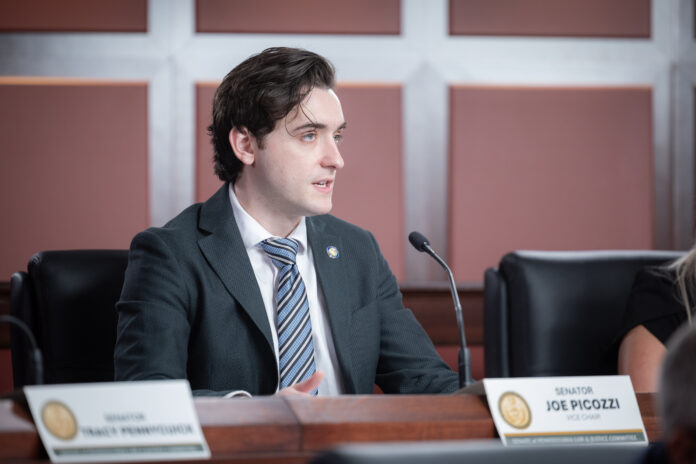By State Sen. Joe Picozzi (R-5th dist.)
Everybody wants to fund SEPTA, so why hasn’t it gotten done?
Political leaders in Harrisburg can’t agree on how to do it. My colleagues in the House propose using sales tax revenue to take money from the General Fund to fund transit. The General Fund supports veterans’ services, hospitals, education and other core government operations. We haven’t seen any clarity about what budget cuts or new taxes would have to come if we used this source of money, when we already have a structural deficit of several billion dollars.
Last week, the Senate passed a SEPTA funding bill that draws money from the Public Transportation Trust Fund, a bank account in Harrisburg with $2.4 billion sitting in it. The balance in the fund has gone up 555% over the past six years, starting at $370 million in 2019. Over a billion dollars has sat in this fund year over year, unused and unallocated.
Our proposal was simple: use the unallocated money in the fund as a two-year bridge to keep our trains and buses running, make sure our kids can get to school, and end SEPTA’s cuts immediately.
The legislation approved by the Senate was also the strongest mass transit safety legislation in decades. It strengthened protections for transit workers, the people who operate our buses and trains. It created stronger penalties for dealing drugs at train stations. It also invested in public safety infrastructure for our stations, such as new cameras and police. It mandated a crackdown on fare evasion, which currently costs SEPTA $30 million to $50 million every year.
Less than 24 hours later, House Democrats shut down this package. They argue that, in theory, the over a billion dollars that has sat in this account for years, unallocated to any planned projects, could potentially someday fund new theoretical projects like the Roosevelt Boulevard Subway.
My view is simple: This money belongs to us, the people of this state, and we need the money now. We need buses and trains to run now. We need to make sure our kids can get to school, workers can get to their jobs and patients can get to their appointments now.
This proposal would have exceeded Gov. Shapiro’s in terms of total funding for the next two years. It would have delivered almost $600 million to mass transit over two full years to see SEPTA make good on the bill’s core mandate: crack down on fare evasion, make the system safer and cleaner, and give the public full transparency on how all the money is being spent.
If SEPTA makes good on these mandated reforms, ridership will go up, fare evasion will go down and, come 2027, all parties involved will be in a much stronger place to achieve a long-term solution with new recurring revenue streams.
Since taking office in January, I’ve met with Scott Sauer and other SEPTA officials at least a dozen times. Scott and I rode the train to Harrisburg together. We took the train to a Phillies game. We’ve had candid and sincere conversations. We love SEPTA and want to see it thrive.
My position from day one has been that we cannot just say, “Here’s a bailout.” This isn’t just about dollars and cents. We need actual reforms to make sure the system is better for all riders.
And that’s the approach we’ve taken. We’re coupling money with serious policy reforms, safety measures and public accountability and transparency for how money is spent. I’ve been able to get Republicans from rural PA to come to the table, and we moved our first major transit funding bill out of the Senate in over a decade. I will keep working to bridge the divide between Democrats and Republicans, the House and Senate and urban and rural communities to deliver for Northeast Philly. ••





